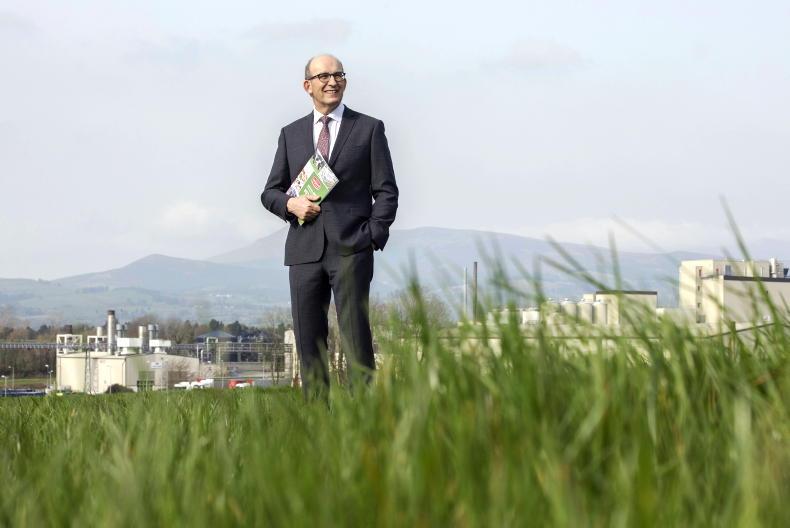“We have an excellent future, but we must change,” Jim Woulfe told Fianna Fáil’s agriculture conference on Saturday. With 42 years of experience in Dairygold, 12 of them as CEO, Woulfe brought a deep perspective to current challenges.
And change at farm level will be incentivised, Woulfe said.
“Financial rewards for embracing climate change measures will be very much to the forefront in 2023,” he said. “Significant funds will be put into milk price if farmers follow the critical measure required to get that carbon number right.”
“We have got to bite the bullet in relation to voluntary exit schemes from bovine farming,” he told the conference, pointing out that they have happened before.
“We had milk quota buy-out, we had restructuring schemes, there was no fuss, no fooster, there was reward there for people transitioning to other enterprises.”
“There’s always been a natural exit from production,” he added, “in 1983 we had 72,000 milk producers in Ireland, in 2014 it was 18,000.”
“We’re just eight years out of deregulation,” he reminded the meeting, “and we’re changing the cycle, the narrative, the business dynamic again”.
He described the ending of milk quotas as leading to the renaissance of the dairy industry.
“If you think back to where we were in the quota era, they were lean times. There was restriction on milk production, we had market surpluses, we couldn’t dispose of butter, we had skim milk mountains. We have challenges today but these were really difficult challenges.”
Global reputation
“Our reputation on the global stage has grown,” he added. “We punch well above our weight”. Woulfe listed a number of things that underpin confidence for the future.
“Plenty of rainfall, rich soils and the longest grass growing season in the northern hemisphere combine to allow us certify milk produced from grazed grass for nine months of the year, and a certified diet of 95% grazed or saved grass,” he said.
Describing 2022 as “ a stellar year” for the dairy sector, he said incomes look likely to increase by 25-30%.
The country is on track to produce 8.8 billion litres of milk at an estimated value of between €6bn and €7bn.
He described the co-op structure as keeping “a fine balance between competing interests, the viability of the dairy farmer producer extracting the maximum price and the competing interest of the commercial stage as well”.
Warning
But Woulfe sounded a warning note.
“The fly in the ointment is sustainability, the climate action plan,” he said. “That’s the challenge, the crossroads right now.”
Describing the agri-industry as being “in the eye of the storm in the public debate”, he stressed one issue in particular.
“Water quality has deteriorated and we have to reverse that very quickly,” he said. “It’s a raw nerve for the ordinary citizen. Listen, it’s unacceptable that water quality isn’t up to the required standard, that it has deteriorated, particularly in the south and south east, it’s one of the first issues that must be tackled”.
He praised Minister McConalogue for “the joined-up approach, with Bord Bia, ICBF and Teagasc working together” but more of that has to happen, he added.
Woulfe closed on a positive note, saying: “We’ve come through tougher times and bigger challenges” and citing Brexit, COVID and the war in Ukraine as three “black swan events” or unexpected challenges recently met by the agricultural industry.






 This is a subscriber-only article
This is a subscriber-only article










SHARING OPTIONS: